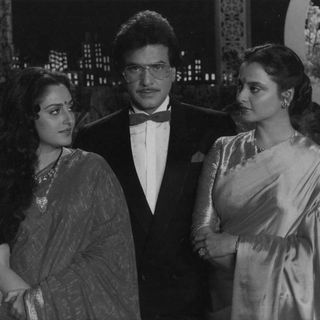A group of Hollywood celebrities, including Natalie Portman, Lilly Singh, and Uzo Aduba have teamed up with tech entrepreneurs and U.S. Women World Cup winners to invest in the creation of an all-new women’s team for the United States’ domestic women’s soccer league. The widely-celebrated move will lend much-needed glamor and publicity to the league, different versions of which have folded within less than three years since its first inception in 1995.
The U.S. Women’s National Team has become a worldwide sensation time and again after every World Cup win (four, so far). Their success has bolstered the players and their fight for equal pay. But it has only recently started trickling down to the domestic leagues and players on lower levels in the country that still struggle with amassing fans, sponsors, and publicity. For years, the lack of large-scale investment has compromised these athletes’ ability to bring in the revenue that attracts glamorous star investors.
Enter Portman and the majority women-led group — “We’re the center of entertainment in this country for media,” Portman told People. “What can we do to change the way people are paying attention to this sport? Obviously, the players themselves have been incredible and have brought so much attention, but everything hasn’t always followed their success and their popularity.” She adds, “To celebrate women at the same level as the way we celebrate male athletes is culture-shifting.”
Related on The Swaddle:
All The Arguments You Need: to Advocate For Equal Pay in Sport
And so it is. One of the main arguments critics peddle against equal pay in sport is the ability of women’s teams to be as successful as men’s teams. This critique often ignores the investment it takes to make any sporting team successful. More investment means better training, better gear, and a strengthened ability to singularly focus on a sporting career bolstered by better, equal pay. Women athletes around the world have to juggle sports coaching and other jobs to be able to sustain their athletic career, which pays them nowhere nearly enough to be their sole focus. Large-scale investment in women’s teams takes care of exposure, quality, and success of women’s sports teams, proving instrumental in the revenue generation we so often see lacking in women’s sports. Without it, the gap remains, widens, and further reinforces the faulty argument that women athletes are simply not as competent as men.
The value of celebrity investment, especially in a field that is one of the most blatantly gender-unequal in society today, is undeniable. Take the Indian Premier League (IPL), for instance — the Twenty20 professional cricket league has enjoyed a top-spot on television news channels for sponsorship deals for 12 long seasons, also helping catapult newbie cricketers to fame and international success. A major reason why is celebrities’ tireless investment in the league’s teams, from Shahrukh Khan, Preity Zinta, John Abraham and Hrithik Roshan, who have lent their Bollywood fame to the sport, not only boosting their own investment portfolios, but also the public reputations of the sport and its players, along with themselves.
In comparison, India still hasn’t launched a women’s IPL, partly because Indian women cricketers are only just starting to achieve fame that is mildly comparable to male cricketers in the country. These women athletes are traveling abroad to countries such as Australia to be able to play at their level while being robbed of opportunities on their home turf, all due to a lack of investment that could otherwise build the robust infrastructure we need to be able to celebrate women athletes. With the coronavirus pandemic and the resulting economic crisis, this gap will only widen more.
Waiting for a women’s team to be successful to then invest in it is a vicious cycle. Investment initiatives from celebrities who passionately speak of gender parity and equal pay are one way this cycle can be broken, as demonstrated by Portman and group. So, do we wait for this change to manifest out of years and years of government budgeting and bureaucracy, or do Indian celebrities diversify their sports investment and back up their feminist claims to give women athletes the boost they need?
The right time to come forward and support women’s teams, according to Indian cricket captain Mithali Raj, is “when the world is talking about women empowerment.” And that time is now.




